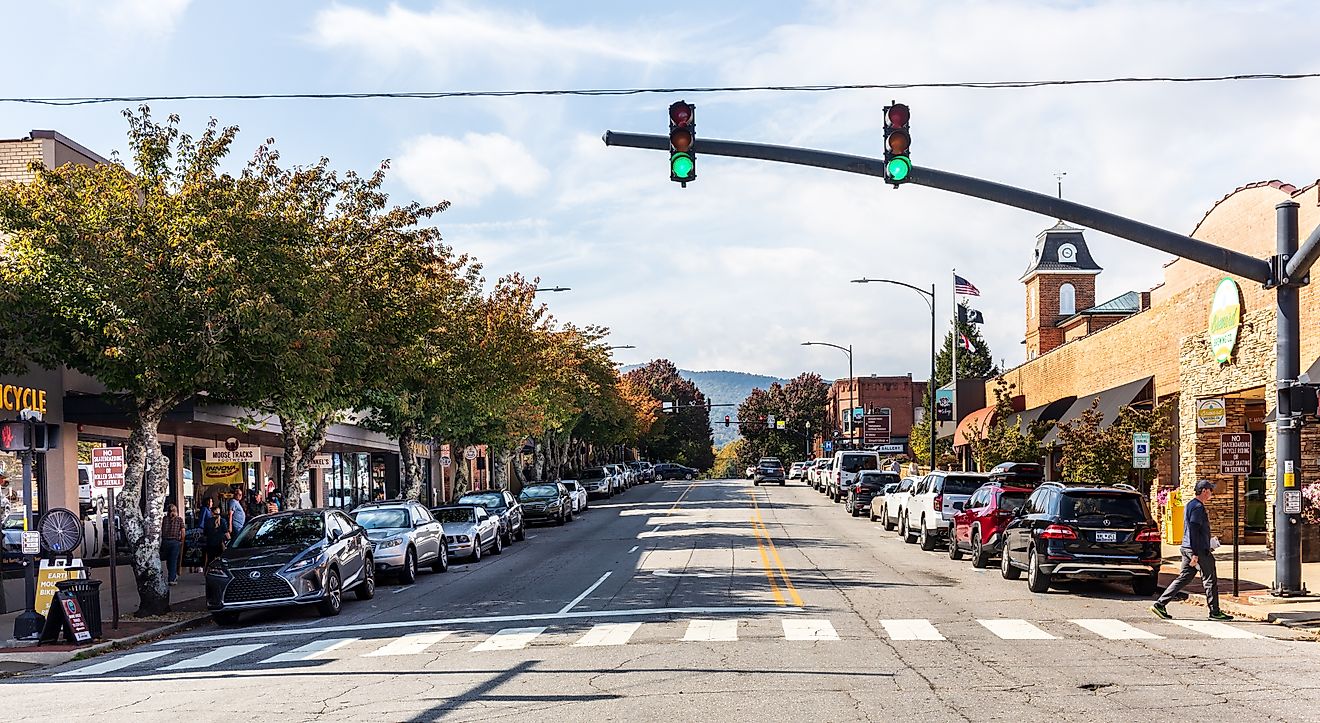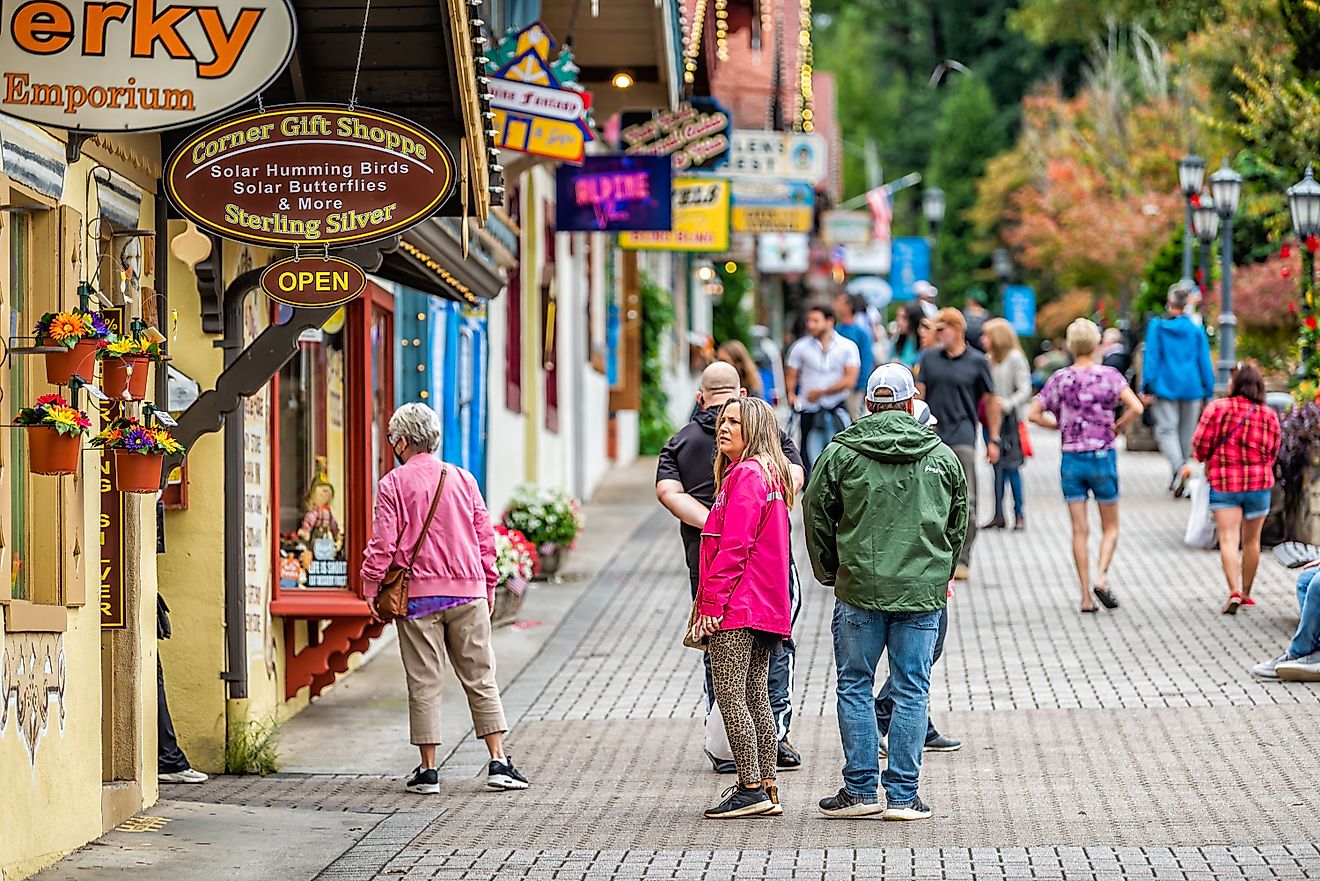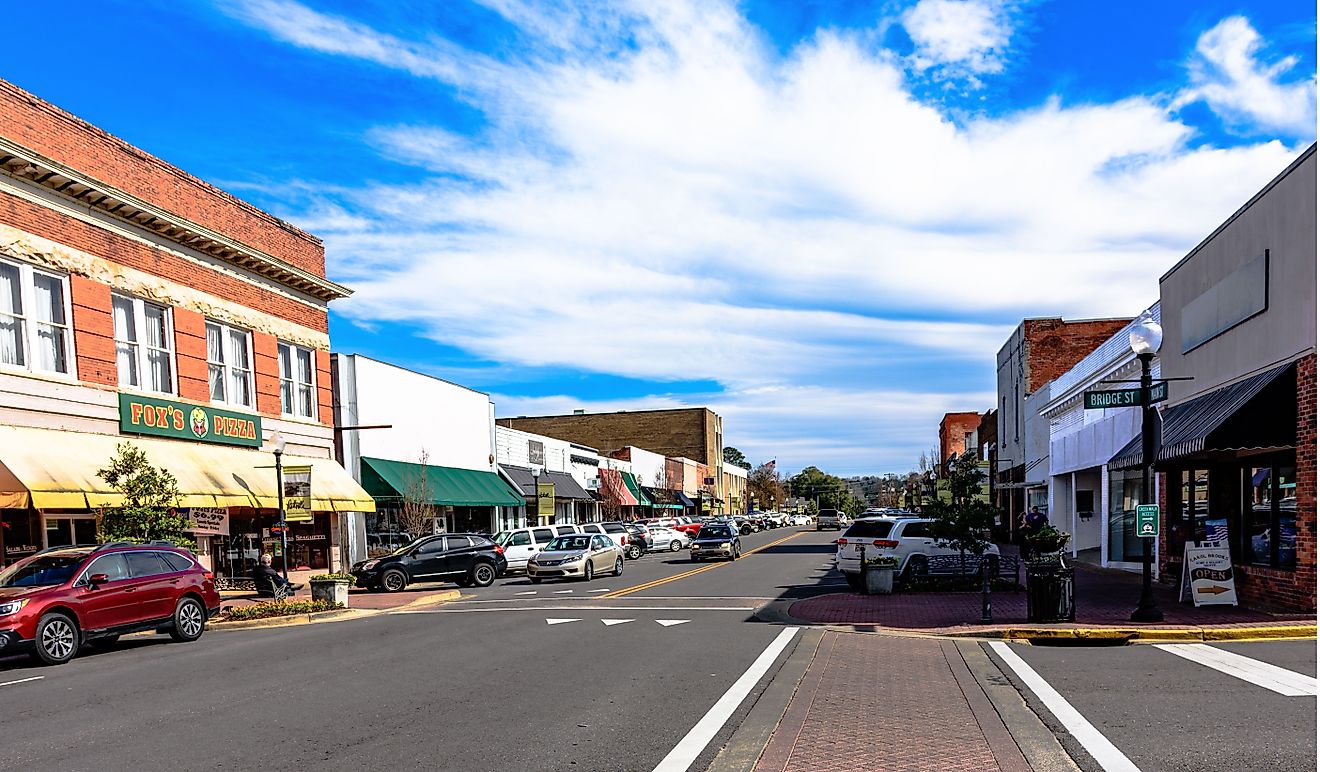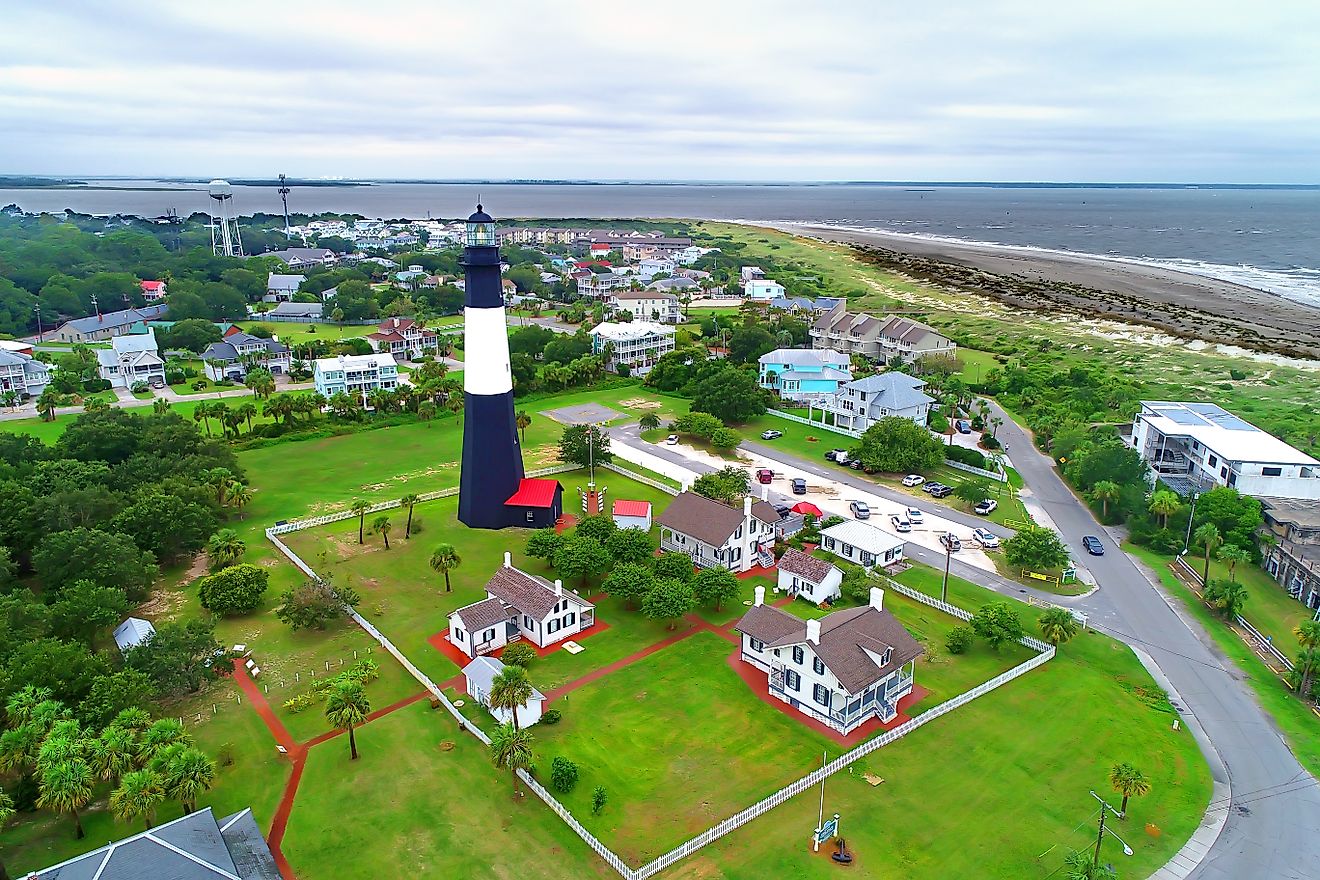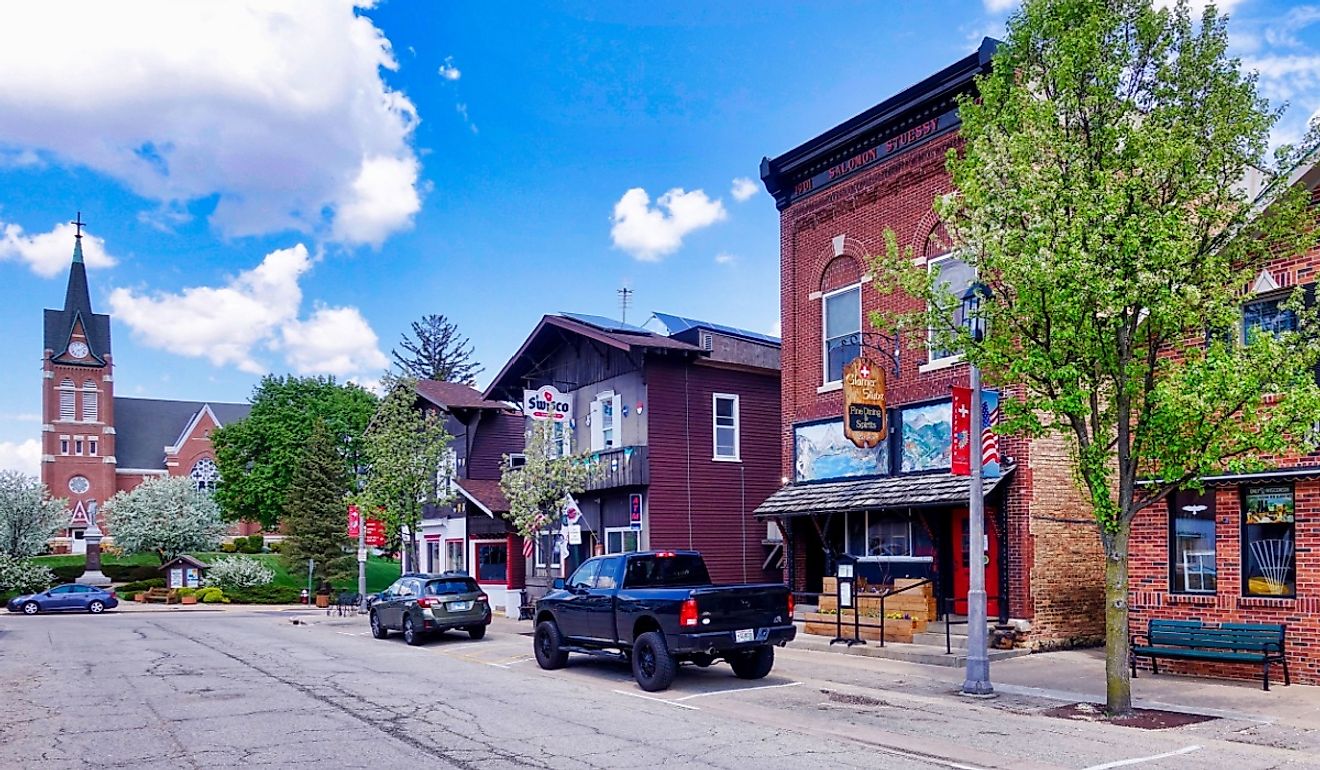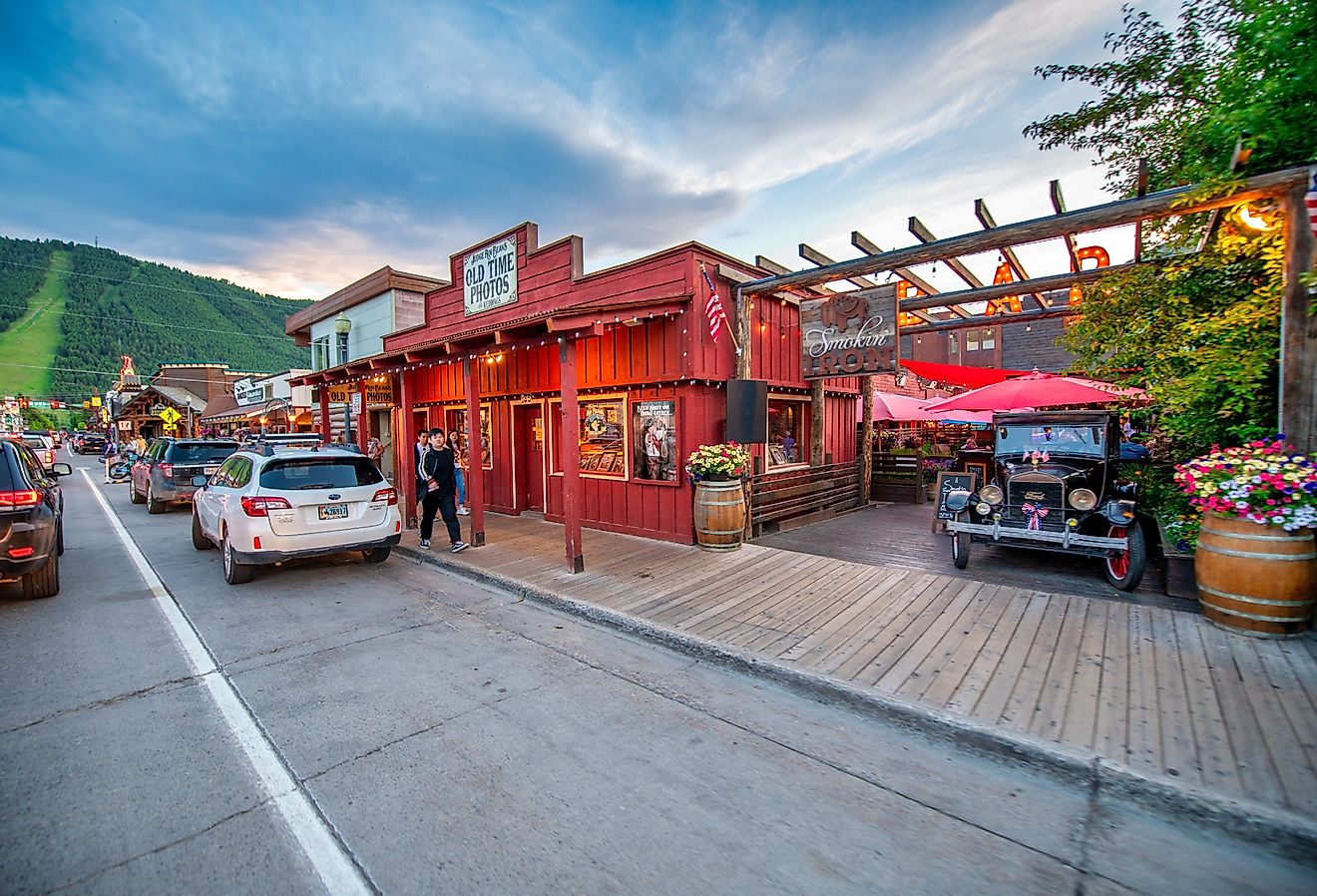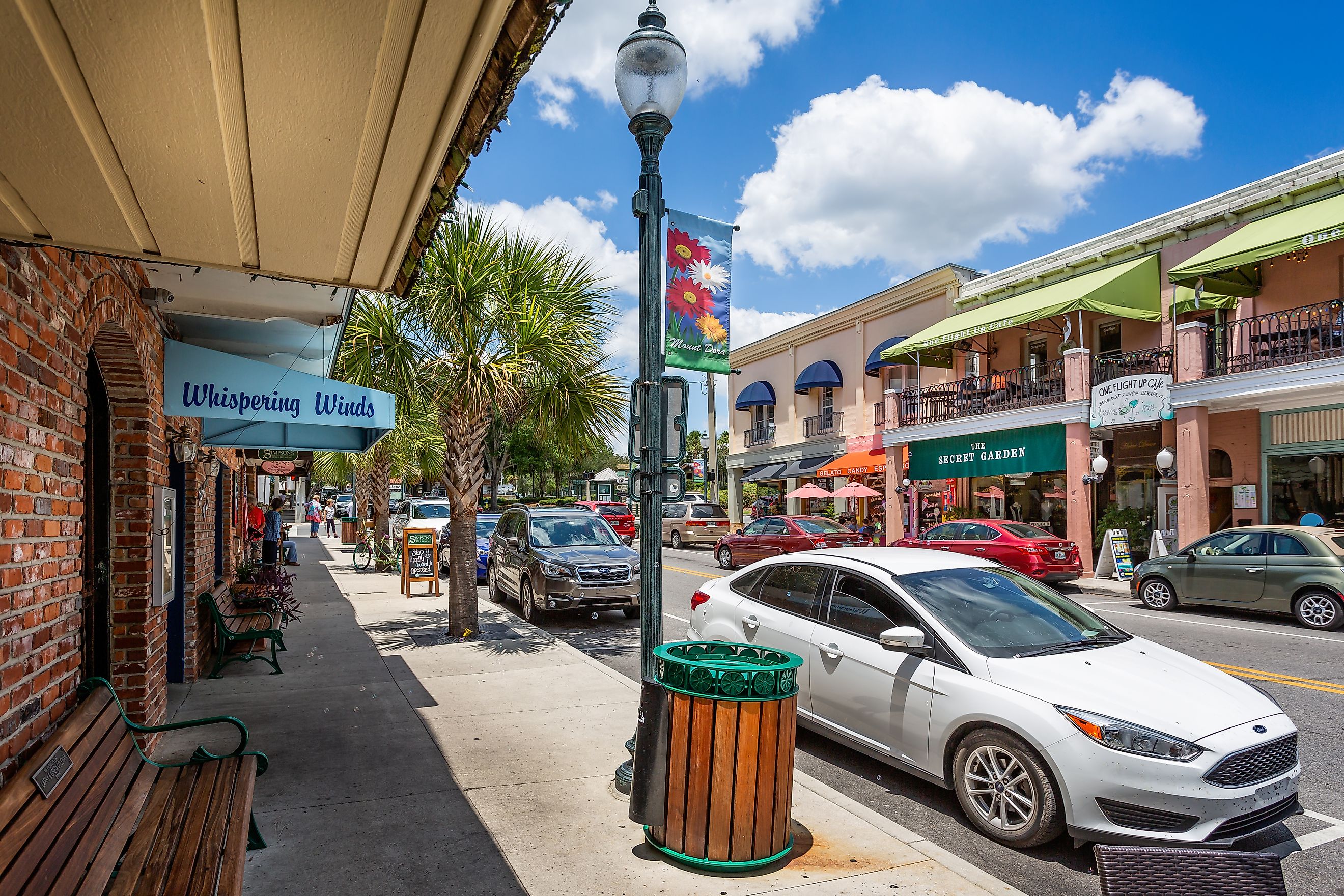
12 Offbeat Towns to Visit in Florida
Millions of holidaymakers gather in Florida annually to take advantage of its warm weather and breathtaking beach scenery. Most are drawn to the glitz and glamor of big cities like Miami and Orlando, which often steal the spotlight of the Sunshine State. But beyond its world-renowned destinations, Florida is also home to multiple overlooked towns promising a fresh experience.
Off the beaten path, in the state’s backcountry, lies a mix of hidden gems housing unique communities with eccentric cultures. Whether you want to uncover forgotten history or indulge in unusual traditions, these small towns in Florida deliver an offbeat experience that goes against the standard holiday retreat.
Cedar Key

This isolated historic village in the Gulf of Mexico is an excellent escape from the city's fast-paced life. Cedar Key delights with a laid back atmosphere punctuated with pristine beach scenery and 19th-century architecture. As one of Florida’s oldest towns, it hosts a mix of interesting old buildings, such as the Cedar Key Museum State Park. This 1920s home displays various artifacts collected by Saint Clair Whitman. Surrounding it is an 18-acre park with fantastic nature trails. Meanwhile, the Cedar Key Historical Society presents a deeper look into the area’s history with old photographs, archives, and other exhibits from prehistoric times.
Cedar Key has exquisite natural surroundings for those who prefer outdoor pursuits, highlighted by Cedar Key National Wildlife Refuge. Boasting 379 acres of untouched natural sanctuary, you can make the most of secluded island trails to watch local wildlife. Alternatively, water-based opportunities abound thanks to local outfitters like Tidewater Tours and you can look forward to the famous Cedar Key, Florida Kayaking Adventure, scheduled for March 17th to 23rd, 2024, to explore the Cedar Key Islands.
Lake Worth Beach
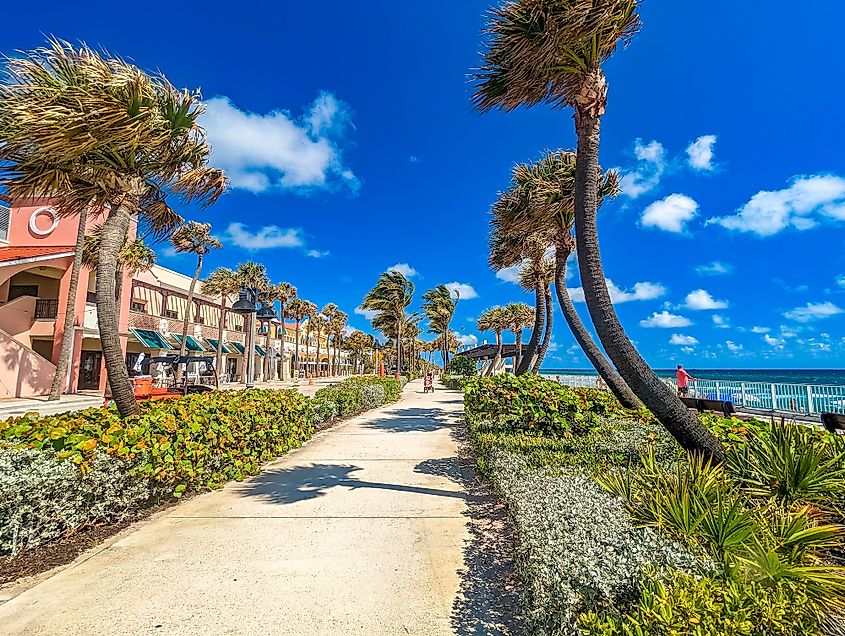
Sitting about 64 miles from Miami, Lake Worth Beach offers respite from the chaos and rowdy crowds in Florida’s Party Central. It has an artsy vibe with a vibrant downtown hosting an impressive mix of galleries and in a thriving cultural scene. Notable highlights include the Benzaiten Center for Creative Arts, a hub for local artists with diverse fine art exhibits. You can’t overlook the superb natural scenery waiting in the open spaces, with spaces like Snook Islands Natural Area presenting countless recreation opportunities. This is an excellent venue for the outdoorsy traveler, offering a chance to stroll along a scenic boardwalk, fish and spot local wildlife.
The same applies to Lake Worth Beach Park, a sandy beach with a relaxed setting perfect for chilling and unwinding. Within the park is a lovely pier with amazing fishing spots overlooking the stunning Atlantic waters. While there, pop into Benny’s On The Beach for sumptuous seafood and mean cocktails while enjoying generous ocean views.
St. Augustine
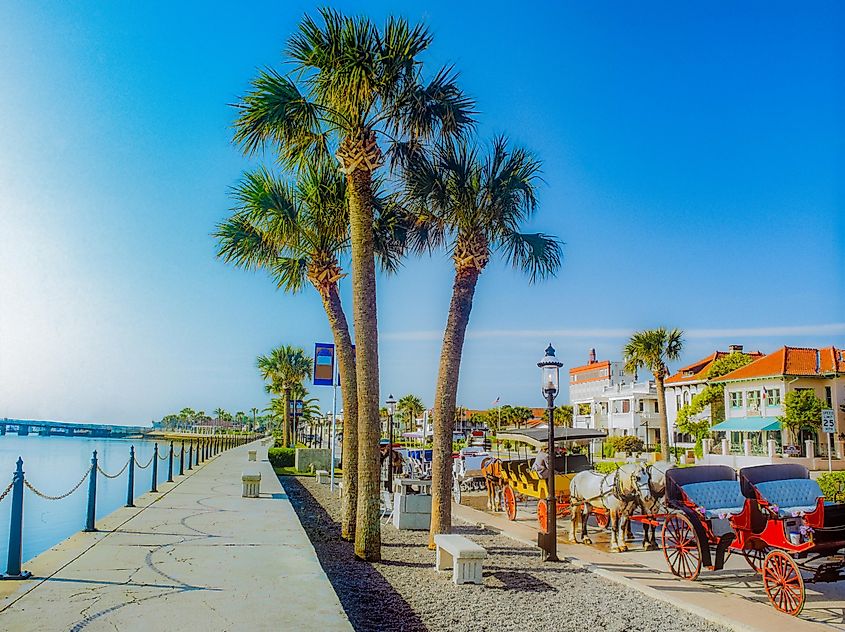
St. Augustine’s claim to fame is America’s oldest city, showcasing rich Spanish colonial history with old-world architecture, lively Plaza streets, and horse-drawn carriages. The picturesque town promises an immersive and nostalgic experience, thanks to a treasure trove of historical gems like the Castillo de San Marcos National Monument. The Spanish built this 17th-century fort to defend the Atlantic trade routes, and it is the town’s oldest structure. More history awaits at the St. Augustine Lighthouse & Maritime Museum, which dates back to the late 1800s and preserves the region’s nautical heritage through historic exhibits.
When not soaking in the rich history in town, you can stop by the St. Augustine Alligator Farm Zoological Park to admire over 20 species of crocodilians, reptiles, birds, and other fascinating mammals. Alternatively, take advantage of the great outdoors at the 1600-acre Anastasia State Park.
Fernandina Beach

Fascinating Civil War History and rich nautical heritage harmoniously intertwine in this historic seaport in northeast Florida. Fernandina Beach excites with a string of sites to explore, and the Amelia Island Museum of History is an excellent stop for those curious about the town’s storied past. Featured in the National Register of Historic Places, the venue is Florida’s first spoken history museum and displays artifacts chronicling the history of Nassau County. You also want to check out the 19th-century Fort Clinch, housed inside the over 1000-acre Fort Clinch State Park. Besides examining interesting landmarks, outdoor opportunities for hiking, camping, biking, and wildlife viewing abound.
Fernandina Beach is also famous for its shrimping heritage and is said to be the cradle of America’s modern shrimping industry. One of the best times to experience this longstanding culture is during the Isle of Eight Flags Shrimp Festival, which will be held downtown between May 3rd and 5th, 2024. Several family-friendly activities to indulge in include good food, live music, artwork, fireworks, and more.
Apalachicola
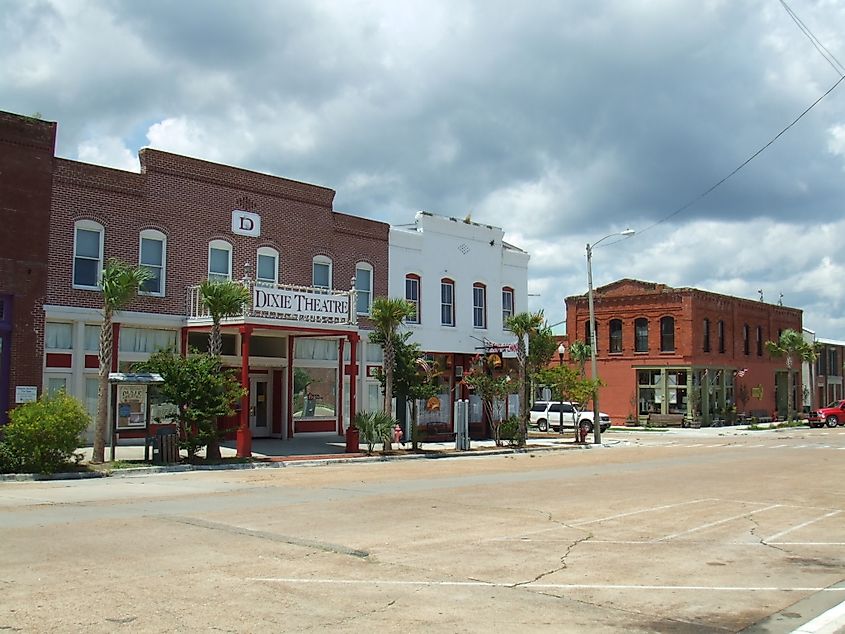
This charming fishing village was once among Florida’s most prominent ports during its heydays and remains a staple for the seafood industry and nature-based tourism. You can explore its rich seafaring heritage at the Apalachicola Maritime Museum, which entertains visitors with relaxing historical boat tours, kayaking excursions, and sunset cruises. Additionally, you can plan a tour of the John Gorrie State Museum, home to a fine collection of unique artifacts, historical images, and film footage. The venue honors the legacy of John Gorrie, the inventor of air conditioning technology.
Nature lovers will fancy strolling through the quiet setting of the Scipio Creek Boardwalk. The short promenade traverses a densely wooded natural area with panoramic views of the surroundings. Finally, Apalachicola is known for fun events and festivals held throughout the year. Among the most exciting to look forward to is the Apalachicola Mardi Gras Barkus Parade on February 24, 2024, with an opportunity to experience Mardi Gras Apalach style.
Mount Dora

This quaint lakeside village along the shores of Lake Dora stands out for its antique stores, annual festivals, art galleries, and historic downtown. It is a mixed bag of touristy delights, promising to impress all types of travelers. Exploring the downtown corridor exposes you to the Modernism Museum, a former fire station exhibiting modern furniture and other space oddities. The bustling local art scene is best embodied by the Mount Dora Arts Festival, scheduled for February 3rd and 4th, 2024, in the downtown area. With almost 300 fine artists lining the streets to showcase their talent, it delivers an immersive cultural experience.
For some interesting background to the town, you can tour the Mount Dora History Museum, which houses a collection of exhibits detailing local history. But if you prefer exploring the outdoors, Palm Island Park offers a pristine natural space on an 8-acre preserve with scenic trails and a boardwalk with quiet fishing spots.
Seaside
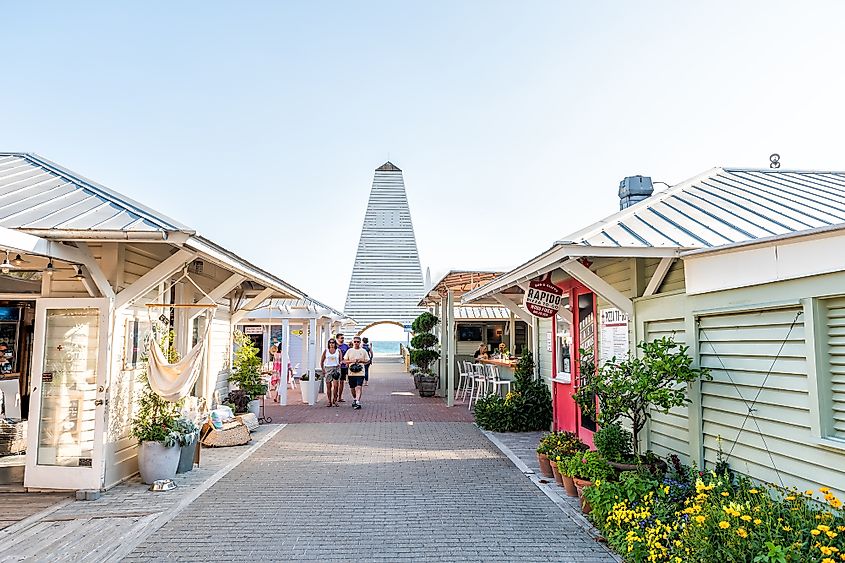
This small resort town on Florida’s Panhandle charms with a classic 20th-century urbanist design featuring tree-lined streets, traditional architecture, and white picket fences. The town center houses a charming mix of restaurants and shops and you can savor delicious Southern-style dishes at the Great Southern Café. Attending the Seaside Farmers Market presents an exciting opportunity to experience the warmth of the local community and shop for handmade crafts, artisan goods, and fresh produce.
Meanwhile, outdoor enthusiasts prefer to hang out at the expansive Grayton Beach State Park. The park covers almost 2,000 acres and provides endless recreation opportunities, from camping and swimming to hiking and sunbathing. The area is also perfect for spotting some of the local wildlife.
Winter Garden

Winter Garden’s charm revolves around its unique downtown, which houses an exciting mix of shopping outlets, antique stores, and quaint eateries. An easygoing walk in the pedestrian-friendly town center lets you explore some of the top local attractions. For history buffs, the Central Florida Railroad Museum is a window into the region’s railroading history, exhibiting photos, maps, charts, and other archives. On Saturdays, you can join the townsfolk at the Winter Garden Downtown Pavilion and Farmers Market to shop for fresh produce and enjoy friendly interactions in a buzzing atmosphere.
Walking a few blocks from the downtown corridor brings you to the beautiful Newton Park. This lovely outdoor oasis lies along the scenic shores of Lake Apopka, spoiling guests with spectacular water views. It also offers a playground, picnic spaces, and a pier for remarkable outdoor fun.
Yankeetown
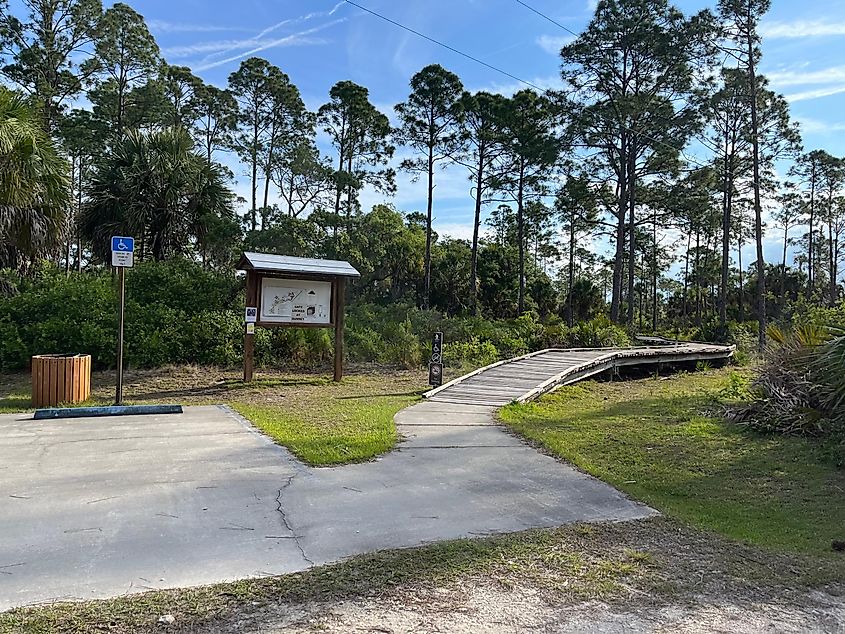
Yankeetown is one of the best small towns in Florida for outdoor enthusiasts. It delivers a rich mix of opportunities, from fishing and boating to bird-watching and nature hiking. This quiet community of less than 1,000 leaves enough space to explore the delightful open spaces without the crowds. For one, Bird Creek Beach has a serene setting with a natural sandy beach where you can escape for some alone time.
Furthermore, the Withlacoochee Gulf Reserve offers 413 acres of idyllic natural space featuring undeveloped wetlands, salt marshes, and dense tree islands. Climbing to the top of the 30-foot observation tower on site spoils you with panoramic views of the surroundings, with exciting wildlife viewing opportunities. Finally, don’t forget to check out the Winding River Garden, another cozy space with a gazebo and scenic wooden walkway from where you can enjoy river views.
Marianna

The seat of Jackson County preserves Florida’s frontier heritage with restored landmarks from the territorial era. It also features beautiful natural surroundings with several outdoor gems to explore. The Florida Caverns State Park is ideal for thrill seekers, presenting a trail of air-filled caves. Meanwhile, the Hinson Conservation & Recreation Area provides more fun outdoor opportunities. It has a serene setting with lovely riverside hiking trails and fishing areas. Wildlife enthusiasts can also take advantage of bird-watching and wildlife-viewing adventures.
Those who prefer indoor pursuits can walk into Marianna Cinemas to choose from an interesting selection of movies. It has a fun, family-friendly atmosphere with full digital pictures and sound. Alternatively, you can admire beautiful custom art at John Brewer’s Studio.
Tarpon Springs
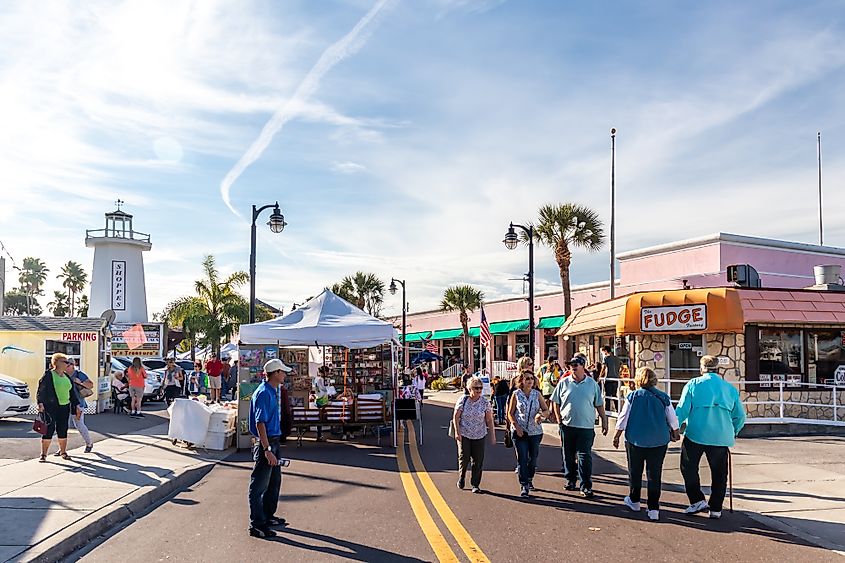
This historic Greek community on Florida’s Gulf Coast charms with a unique Mediterranean vibe. It has an assortment of attractions that showcase its deep Greek heritage, including the gorgeous Saint Nicholas Greek Orthodox Cathedral. Established in the early 1900s, it is an important town landmark and the first Greek Orthodox Christian church in the Tampa-St. Petersburg region. For beachgoers, Fred Howard Park presents a delightful stretch of white, sandy shore that brings together enthusiasts to sunbathe, lounge, and enjoy a dip in the warm Gulf of Mexico waters.
Meanwhile, the Tarpon Springs Sponge Docks is a popular tourist draw in the town, showcasing its unique Greek roots. You can buy some of the world’s finest sponges and sample delicious Greek cuisine at the many restaurants in the area.
Venice

Soak in the majesty of Florida’s Gulf Coast in this idyllic small town with amazing outdoor scenery. Venice is known for miles of pristine beaches, with the most unique being Venice Beach. It has a cozy setting with breathtaking views of the Gulf of Mexico and opportunities for dolphin spotting. A short distance from the beach, you will encounter the 700-foot Venice Fishing Pier, an excellent spot to admire the majesty of the town’s open spaces. It is especially ideal for anglers looking for fishing opportunities without a license. Your trip is not complete without strolling through Historic Downtown Venice, which impresses with old charm dating back to the 1920s. The neighborhood houses many shops, restaurants, galleries, and boutiques to explore. Finally, sample the local seafood scenery at Sharky’s On the Pier.
Bonus Entry: Naples

Though a smaller city, Naples offers an impressively wide range of tourist attractions. From high-end resorts and shopping areas to an active arts community, there is something to satisfy many interests. The Naples Botanical Gardens beautifully showcases the local natural environment through its diverse tropical plant collection spread across 170 acres. Meanwhile, the historic Naples Pier draws visitors and locals with stunning Gulf views and wildlife-watching opportunities.
Those seeking retail therapy will find top stores downtown. One can also spend time at Tin City by the water or connect with animals at Naples Zoo at Caribbean Gardens to enjoy the diverse entertainment within Naples's compact expanse.
Final Thought
Beyond the crazy nightlife and busy theme parks, these charming small towns in Florida open a window to a less-seen side of the state, offering a fresh experience. Each location has a distinct character and presents an avenue to immerse yourself in a unique culture and captivating local history.
